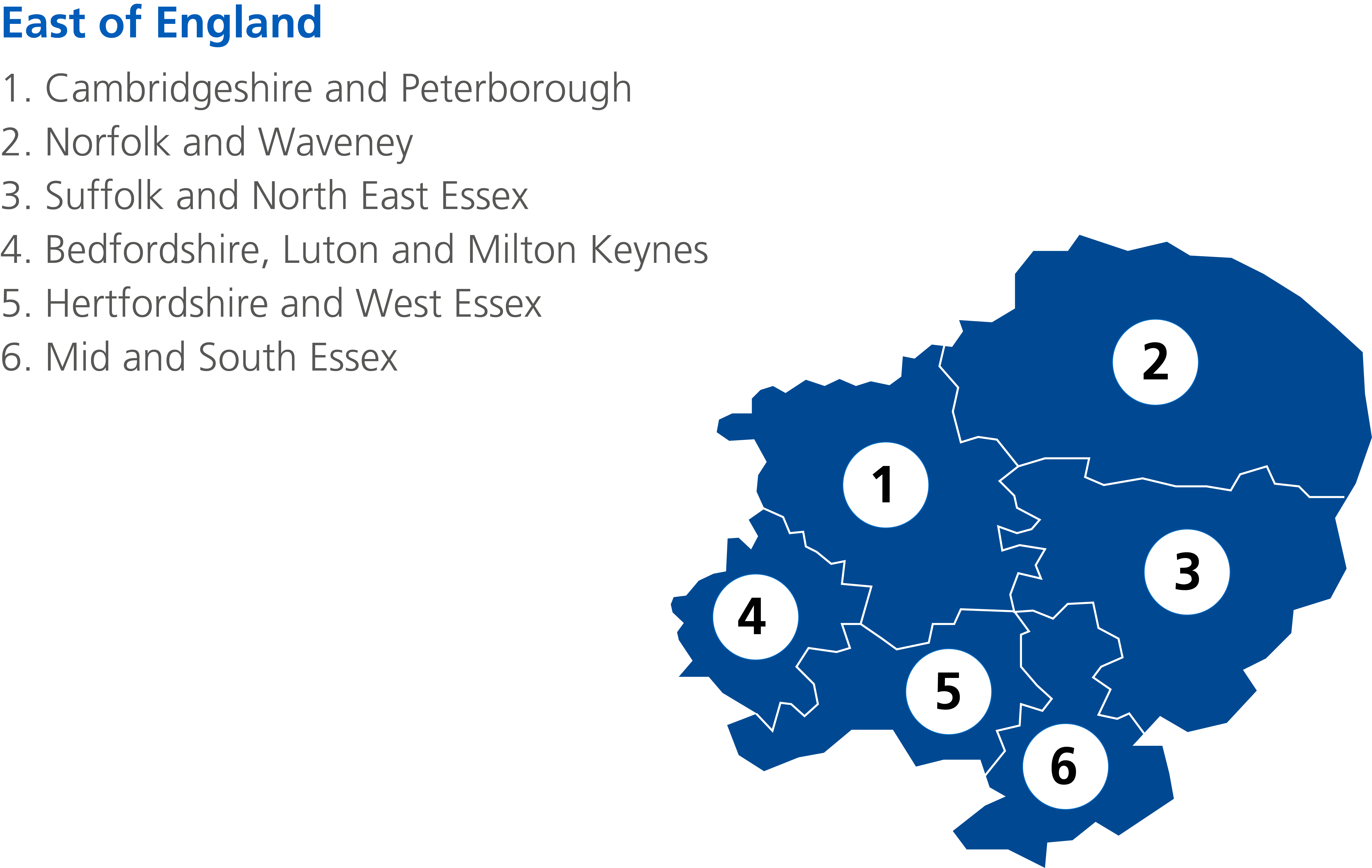
The East of England Faculty for Advancing Practice has been established to lead and promote advanced practitioners as part of the workforce solutions that support service change and work with local systems to identify demand, commission high quality education and training and vitally to support the supervisory needs of our learners.
Our investment is aligned to the NHSE Buisness Plan, NHS People Plan, NHS Long Term Plan and NHS Long Term Workforce Plan to ensure that across the east of England this development is responsive to system needs and will deliver the right number of staff, with the right skills, values and behaviours, at the right time and in the right place. To grow our advanced practice workforce, we will continue to work in collaboration with our Integrated Care Board partners, organsiations, Higher Educational Institutes and the east of England Workforce, Training and Education teams to identify workforce demand, enable the transformation of patient care and invest in workforce education and training development.
By embracing the continued development of advanced practitioners across our organisations it will enable us to further improve the standards of care that we provide our patients by:
- Retaining valued, experienced staff who wish to remain clinically facing and still be able to advance their career thereby maximising clinical career progression opportunities. Realise the full scope of practice within and across each profession
- Increase the focus on person-centred care, self-care, population health approaches and rehabilitation, keeping people at home, in work or school and as independent as possible
- Improve continuity of care, discharge processes, and access to services
- Increase capacity to supervise and develop the multi-professional workforce, including medical trainees, to maximise scope of practice, service productivity and innovation
- Support service redesign and transformation
- Support teams to develop increased decision-making capability and capacity, including that required to delivery 24/7 services, improve patient/service user and carer satisfaction and associated outcomes
- Reducing spend on temporary staff with increased safety, productivity, and value of investing in a Trust’s own staff